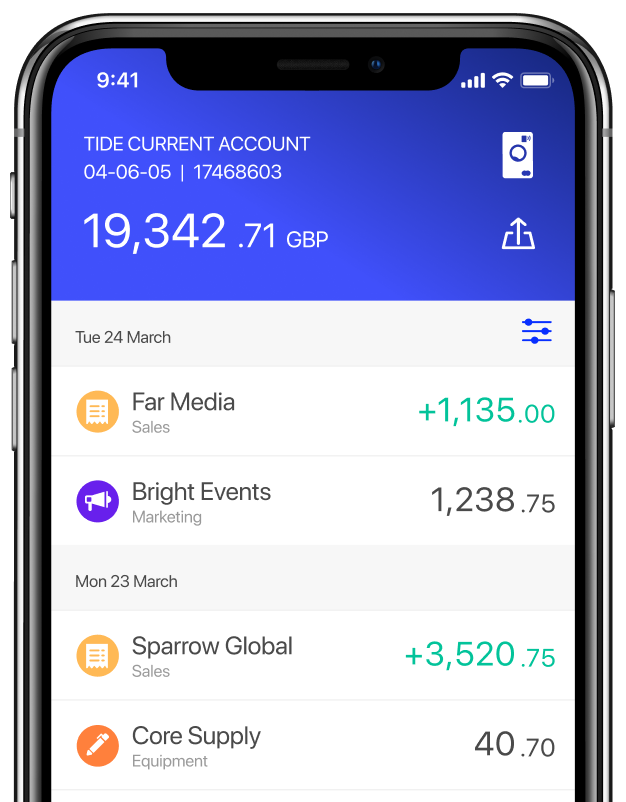
What deductible Christmas party expenses can I claim in the UK?

Another holiday season is upon us, and companies big and small are planning out their festivities. Company Christmas parties are a great way to show appreciation for your employees.
But in light of recent economic changes and the ongoing pandemic, you may be wondering how and whether to celebrate this year. Good news: most office Christmas party expenses are deductible.
HMRC offers incentives that allow limited companies to claim annual holiday expenses. And if you know the ins and outs, you can show appreciation to employees and customers without breaking the bank.
In this article, we’ll cover everything you need to know about office Christmas expenditures—from parties to gift-giving to decorations. We’ll also dive deep into specific spending you can claim.
Top Tip: Understanding expenses can help you protect your small business cash flow. Learn everything you need to know about the what, why and how of claiming business expenses in our complete guide to managing small business expenses ✅
Table of contents
- What are the rules surrounding Christmas party expenses?
- Rules on gift expenses
- IR35 and umbrella services
- What Christmas expenses can I claim?
- Wrapping up


What are the rules surrounding Christmas party expenses?
You can claim the costs of an annual Christmas function as business expenses—with a few restrictions. Before we look at the guidelines for party spending, you need to understand two points:
- Annual event tax deductions only apply to limited companies—sole traders are not covered.
- These deductions are an exemption, not an allowance.
Let’s look at what this means for tax purposes.
Allowance vs exemption
An allowance doesn’t reduce tax liability. Rather, it reduces the amount of money withheld for taxes upfront.
You can deduct an exemption from the taxable income you claim on your return. But, unlike with an allowance, you don’t get to claim the money in advance.
An exemption is subtracted from your total taxable income. You must spend the money on qualified costs before you can claim it. Then you can claim it on your tax returns to adjust what you owe at the end of the tax year. Understanding the difference will help you plan for your holiday party spending.
Let’s take a look at some of the rules you need to be aware of.
Is the annual Christmas party a deductible expense?
As noted above, HMRC provides tax relief for ‘annual events’. That includes holiday parties, as long as they meet the following criteria:
- The party must include all employees. ‘Management only’ soirees are not covered by the exemption. All staff must be invited to attend the gathering in order for it to qualify.
- The cost of the event doesn’t exceed £150 per attendee.
- The party must be an annual function. A Christmas party qualifies, as would a yearly summer picnic. But one-off events like a celebration for a record sales year would not be tax deductible.
Can I claim more than one annual party per year?
What if you’ve already hosted a staff party this year? Are you out of luck for a Christmas do? Fortunately, you can claim the exemption for multiple parties per year as long as they meet the above standards.
But keep in mind this important disclaimer: the expense per person can’t exceed £150 in total for the year. That means you may claim both a summer party costing £70 per person and a holiday party at £80 a head in one tax year. But not two parties at £150 per person each.
Can I expense partners and spouses?
Yes! The £150 limit applies to each guest, and HMRC specifies it can include partners and spouses of attending staff members. The limit also extends to any member of the employee’s household included on the invitation.
What about clients?
If you invite clients to your office party or decide to throw a party for management and key customers, the costs are not deductible. Spending money on clients falls under the category of business entertainment and thus is fully taxable.
If you host a party including both staff and clients, you’ll need to calculate costs by the number of people in attendance. Then take out the total costs for non-employees (clients and their guests). You can only claim the exemption for staff entertaining.
Be careful of overspending
As mentioned, the tax relief for holiday parties is an exemption, not an allowance. That means you can claim the entire £150 per person on your tax return.
However, if the cost of the party exceeds the limit per person, even by one penny, you can’t claim any of it. If you want to write off your celebration, it pays to be budget conscious.
Learn more about the requirements for expensing annual events at GOV.UK
Manage company spending with Tide Expense Cards for your team
Make managing expenses smart and simple, with company expense cards for you and your team. Easily manage your spend, keep track of expenses, and save time processing expense claims. Easier for you, and easier for your team. Join 300,000 businesses and open a free business bank account today.
Rules on gift expenses
Christmas is a time for giving and showing your appreciation for those who are a part of your company’s success. And in their support of holiday cheer, HMRC allows exemptions on certain company gift giving 🎁
Gifts for clients
Gifts can be a thoughtful way to acknowledge valued clients and stay on their radar. Customer gifts can be tax deductible if they meet the following criteria:
- Client gifts must be a clear advertisement for your business. The gift has to be an obvious company advertisement. For example, your company name or logo must be prominently displayed somewhere on it. Otherwise, for tax purposes, the gift is considered entertainment, which is not an allowable expense.
- They cannot cost over £50. As with party spending, if the price tag goes over by even one penny, none of the cost of the gift is deductible.
- They cannot be food, alcohol, tobacco or vouchers for any of those items. Even if you attach a label with your company logo on it, these consumable products also fall under the category of entertainment and can’t be claimed.
Gifts for employees
Gifts for employees are a gesture of goodwill during the holidays. And depending on the form that gesture takes, you may be able to claim them as business expenses.
Gifts in the form of money or bonuses are usually distributed through payroll. And any other large gifts are reported as end of year benefits and expenses on form P11D.
But you don’t pay tax or national insurance on gifts considered ‘trivial benefits’. These are gifts that meet the following criteria:
- Costs £50 or less
- Is not cash or a cash voucher
- Not a reward for employee performance
- Is not included in the terms of the employee’s contract
Keeping gifts within the limit and giving them purely out of generosity allows you to expense them.
Learn more about claiming expenses for employee gifts at GOV.UK.
Top Tip: Navigating employee business expenses can be complex. Some qualify as tax deductions, but others will leave you out of pocket. Learn about the types of employee expenses you face and how to determine which make sense for your company goals by reading our complete guide to employee expenses 🌟
Gifts for charities
As always, most gifts to charities are tax deductible for limited companies. There are no restrictions on amounts when you donate to qualifying charities as long as you claim them appropriately.
Learn more about charitable giving at GOV.UK.
IR35 and umbrella services
The questions of Christmas tax exemptions can be a little tricky for contractors working for other companies. Two common questions come up around what qualifies for exemption when it comes to IR35 status and using umbrella services.
Let’s take a look at each case.
Top Tip: To brush up on general IR35 rules and how it works for both businesses and contractors, read our guide that explains what IR35 is (and it means for you)💡
Will an office Christmas party affect my IR35 status?
Maintaining status regarding IR35 (or off-payroll working) is a concern for many contractors. Working inside IR35 means you get taxed as an employee, even if you’re a contractor working through an intermediary. If you maintain your status working outside IR35, you get the tax breaks of a limited company and don’t tax yourself as an employee.
So how do Christmas parties affect your standing as a contractor? Will attending a client’s staff Christmas party change your status?
IR35 status is determined by the principles of Control, Mutuality of Obligation (MoO) and Substitution. Attending a staff holiday party probably won’t impact your status if you can prove you operate as a contractor within those principles. Likewise, if you’re hoping to be defined as working inside IR35, party attendance won’t likely be enough to solidify your status.
But if your operations aren’t clear cut, attending an office Christmas party may be one factor HMRC looks at in deciding your status. Your invitation could be seen as an employee benefit. If you want to stay working outside IR35, consider offering to pay your own way at the party. That way you avoid any grey area.
For more on working off-payroll, visit GOV.UK.
Can I claim exemptions while working under an umbrella company?
If you’re working under an umbrella company, you’re not eligible to write off Christmas party expenses. Even though you’re an independent contractor, if you’ve signed up with and work through an umbrella service, you’re considered their employee.
You’re not eligible to take a tax deduction for Christmas parties or gifts to clients because the umbrella company pays you under the Pay As You Earn (PAYE) system. They treat you as an employee, withholding your taxes and insurance and paying them to HMRC.
Top Tip: As an employer, to avoid penalties or interest charges, it’s critical that you understand and correctly set up PAYE. To learn everything you need to know about how to set up, calculate and report it, read our complete guide to PAYE for business owners 📌
What Christmas expenses can I claim?
Once you know your tax status and spending limits, you can turn your attention to what specific Christmas expenses you can claim. Here are four of the top items to consider, with examples.
1. Office party
Yes, your office party is deductible—assuming it follows the guidelines set out by HMRC. That covers combined costs for the party, including:
- Transportation
- Accommodations
- Food and drink
- Entertainment
- Eligible VAT
Companies with employees working in different locations can also claim an exemption for holiday celebrations. Consider these cases:
- Parties at multiple locations or for different departments. Your company may have branches in different locations or want to separate celebrations by department. You can still deduct expenses for these separate events, as long as every employee in the branch or department is included in the invitation.
- Virtual parties. With the rise in remote workers and lockdown restrictions over the pandemic, more companies are opting for remote celebrations. The good news is that you can still provide a festive atmosphere and get the deduction. You can hire entertainment to share through video conferencing or ship hampers of food and drink to employees to enjoy at the party. In either case, the expenses are covered as long as you’re following HMRC guidelines.
2. Christmas decor
If you have a business office outside your home, holiday decorations are definitely on the list of things you can deduct.
You can count everything from tinsel to lights to a tree toward your expenses. And you don’t have to include decorations in your party expenses. Christmas decoration deductions fall under the category of day-to-day running costs.
3. Employee gifts
You can claim gifts to employees as long as they cost £50 or less, aren’t monetary (or vouchers) and do not represent rewards or compensation.
That means you shouldn’t count on expensing engraved dishware celebrating a big company milestone. Or gift certificates awarded to the top salesperson in the company. But thoughtful gifts offered to all employees in the spirit of giving qualify as ‘trivial benefits’.
4. Client gifts
As outlined above, certain client gifts are deductible up to the cost of £50 per individual. You have to be careful that they feature a conspicuous advertisement for your business and don’t fall into the category of entertainment. No food, alcohol or tobacco products.
That means you won’t be able to deduct a branded hamper of wine and cheese. But things like a business diary with your trading name or branded office supplies or sporting gear are appropriate and eligible.
Top Tip: Tracking business expenses is essential to filing your taxes correctly. Simplify the process by automatically recording and itemising expenses with a company expense card from Tide ⚖️
Wrapping up
There’s no reason to stifle your holiday spirit if you’re worried about budget concerns. With available HMRC taxable benefits, you can make the holidays merry for your business.
Whether you opt for the full celebration or prefer a quieter approach with personal gifts for employees and customers, know the guidelines to make decisions that will best serve your staff, clients and business needs.
Cheers to making the season a little brighter for those who help keep your business running 🎉


Photo by Artem Kniaz, published on Unsplash




